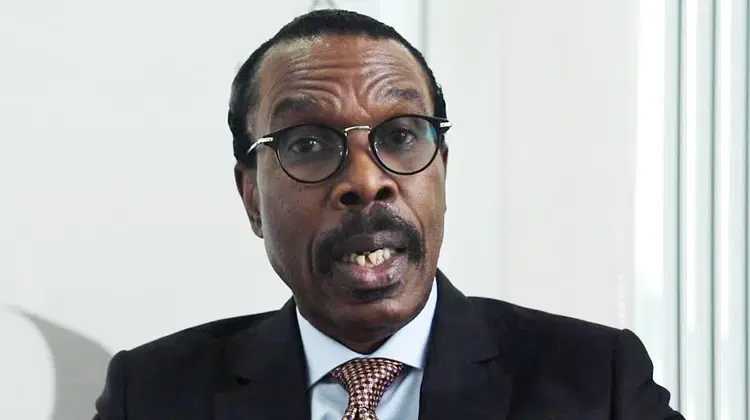A recent report by accountability firm BudgIT has revealed that the Federal Government’s expenditure in 2023 was three times its revenue, resulting in a staggering deficit of N13.51 trillion.
Analysing the 2023 fiscal accounts from the Office of the Accountant-General of the Federation, BudgIT disclosed that the government generated N5.99 trillion in revenue but spent N19.50 trillion, exceeding its income by N13.51, according to The Punch.
The report showed that the revenue sources included N3.80 trillion from the Federation Account Allocation Committee, N1.98 trillion from independent government revenue, and N202.54 billion from other sources.
This significant deficit underscores the government’s ongoing fiscal challenges, as it continues to borrow heavily, exacerbating debt and financial instability.
Commenting on this development, Victor Agi, voiced concerns over Nigeria’s escalating debt crisis, warning of severe economic repercussions if urgent measures are not implemented to address this trend.
“The economy is bleeding and we are struggling to fund capital expenditure. The implications are dire,” Agi said.
He criticised the government’s handling of the economy, stating, “It shows how irresponsible the handlers of the economy have been since a couple of years now.”
Agi noted that Nigeria has experienced no economic growth since 2014, with the economy experiencing negative growth. “If nothing is done about it, it will continue,” he warned.
He expressed concern over the government’s borrowing habits, saying, “The problem is not the fact that the government is borrowing, but what are we borrowing for? We are borrowing to fund debt, to fund frivolities.”
Agi highlighted that just 4.4% of the government’s N19 trillion expenditure in 2023 was allocated to capital projects, calling this allocation “not acceptable.”
He cautioned that the repercussions of the government’s fiscal policies are already evident, with the rising cost of living making it increasingly difficult for ordinary Nigerians to make ends meet.
“The money we are borrowing is not the problem per se. The fact that we are borrowing to service debt, to fund frivolities, is the problem,” Agi stressed.
He called for fiscal responsibility, urging the government to prioritise funding for the real sector of the economy and capital expenditure.
“Our fiscal handlers must be more responsible if we will get out of the current economic situation,” he said.
Meanwhile, a public policy analyst, Femi Oladele, also raised concerns about the Nigerian government’s spending habits, warning that the country’s economic challenges could deepen if these issues are not addressed.
Oladele acknowledged that spending beyond one’s income isn’t inherently problematic but stressed the importance of scrutinising how these funds are allocated and spent.
“If I I earn N200,000.00 monthly, but spend N1,000,000.00 in three months – that’s not necessarily bad. But if we check what I spent the money on, we can then draw subjective inferences,” he said.
He questioned the government’s spending priorities, suggesting that they might be relying on uncertain “windfalls” to sustain their excessive expenditures.
He urged for a more transparent and strategic approach to financial management to avoid deepening the country’s economic challenges.
“In my opinion, it looks like our Government believes (or knows) that there is some kind of windfall somewhere that others don’t know,” Oladele stated.
He criticised the government’s tendency to prioritise non-essential expenditures, saying, “There are some expenditures that can wait…till we exit this economic doldrum, but it appears they are not so worried.”











